Sitting in my winter coat, a Styrofoam cup of tea in hand, I listened in awe as the orchestra on stage finished Gustav Holst’s “Jupiter.” Nearby, several friends of mine sat in similar joyous awe, taking in the music.
This was a regular Friday or Saturday evening occurrence during my college years. Thanks to the abundance of free musical events at my school, I was frequently enriched by choral, orchestral, and other musical performances of a professional quality. Not all my peers partook in such enrichment, but many at my small Christian liberal arts college did enjoy attending regular musical events whether they were musicians or not.
Regularly witnessing such beauty created a certain tenor amongst the college community, or, at least, amongst the groups of which I was a part. As renowned philosopher Roger Scruton says, true art “stands on the threshold of the transcendental,” pointing us “beyond this world of accidental and disconnected things to another realm.” The awe one feels when listening to a well-trained choir sing a complex piece in another language is not easily reproduced in other pastimes, like watching sports or even a film, and the audience, as a community temporarily brought together by music, shares such awe. Those who witness good art are pointed beyond themselves and the artwork. Regularly opening ourselves to witness the transcendence of good art creates a receptivity in ourselves and our communities, a posture of welcome towards all that is good and beautiful, a posture extending beyond the arts.
As such, many of us would profit from attending more choral performances or Shakespeare plays. We should jump at the opportunity to attend local performances of pieces such as Handel’s “Messiah” when such opportunities come our way, for witnessing such beauty is formative.
But outside the world of the university, frequent exposure to high art is simply not an option for many, due to finances or other commitments.
I mulled over this conundrum several weeks ago as my husband and I drove to a piano recital for my younger brother. “What is the place of the arts in an ordinary, non-academic life?” I wondered.
The pianists who played at my brother’s recital were much younger and less developed in their skills than the pianists I saw perform at college. The location of the recital – a small church auditorium – was much humbler than my university’s performing arts centre. The recital audience was likewise smaller than that of many other performances, mostly composed of the pianists’ families.
Still, to sit and watch the pianists perform – especially as the older ones, playing Chopin and other famous composers, came to the bench – brought that old familiar awe-filled joy to my heart. While the young pianists were not professionals or full-time music students, they devoted themselves to playing their music well. Their focused eyes, roving fingers, and the resulting beauty of their music testified to their devotion.
Public enjoyment of music and other arts, even performed by amateurs, enriches both the individual and the community as it points beyond themselves toward something higher. As the artist pursues his purpose – that is, transcendence, beauty – the audience is witness to his noble pursuit. And even if he does not quite reach his aim, those who watch him benefit by patiently witnessing the pursuit after beauty.
Even a humble piano recital in a small church on a quiet suburban street can direct one’s eyes upwards to that beauty which is higher than our lowly affairs, that beauty which endows and enters into our experience, often at unforeseen moments, that beauty which has been given by the one who, in the words of Solomon, “hath made every thing beautiful in its time.”
“High art” may not regularly have a place in an ordinary life like mine. But the communal arts of a piano recital, a free summer evening concert, or a production put on by a local Shakespeare troupe can have a meaningful place if one is willing to witness and welcome such pursuits after beauty, however amateur.
—
The republication of this article is made possible by The Fred & Rheta Skelton Center for Cultural Renewal.
Image Credit: Pexels
29 comments
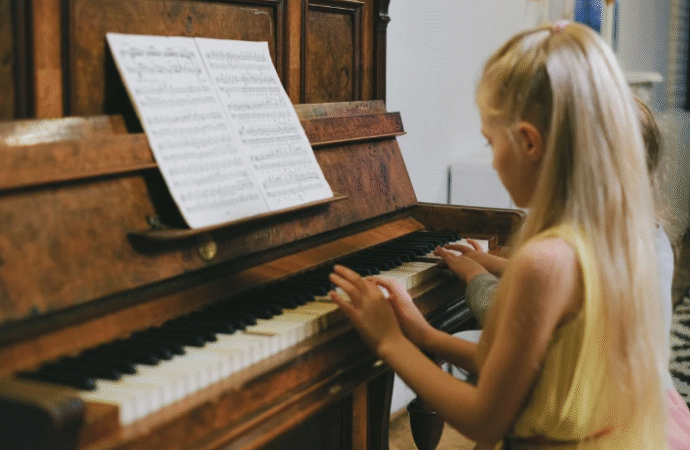
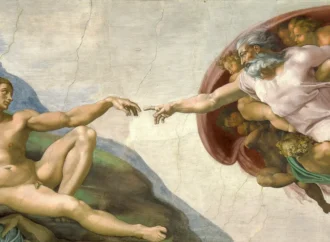
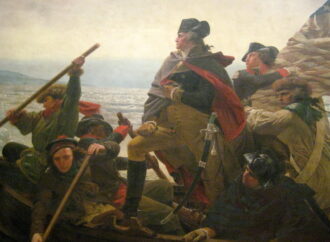




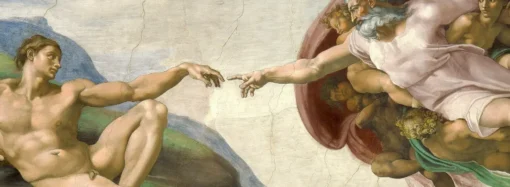
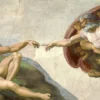
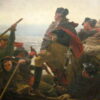
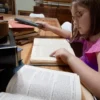




29 Comments
MichaeleSProsser
June 28, 2025, 1:44 amI have earned and received $19,683 by working online from home. In previous month i have this income just by doing work for 2 hours maximum a day using my laptop. This job is just awesome and regular earning from this just great. Now everybody can now get this job and start making real money online just by follow instructions on this website…——–>> https://Www.joinSalary.Com
REPLYTess Seymour@MichaeleSProsser
June 29, 2025, 2:12 pmEverybody can earn 250/h Dollar + daily 1K… You can earn from 6000-12000 Dollar a month or even more if you work as a part time job…It’s easy, just follow instructions on this page, read it carefully from start to finish… It’s a flexible job but a good eaning opportunity.tab for more detail thank you……..
JOIN US ——-⫸ http://Www.HighProfit1.Com
REPLYFeatherjourney@Tess Seymour
June 30, 2025, 11:29 amMy roomate's mom-in-regulation makes usd eighty one each hour at the laptop . She has been fired for eight months but remaining month her paycheck turned into usd 17367 just operating on the pc for a few hours…..
Reading This Article:———- https://Www.Cash43.Com
REPLYMalani Woolf@Tess Seymour
July 1, 2025, 2:09 pmGoogle pay 500$ per hour my last pay check was $19840 working 10 hours a week online. My younger brother friend has been averaging 22k for months now and he works about 24 hours a week. I cant believe how easy it was once I tried it out.
Just join This Website……… https://Www.EarnApp1.Com
REPLYEMMA@Tess Seymour
July 3, 2025, 12:14 pmI’m making over $13k a month working part time. I kept hearing other people tell me how much money they can make online so I decided to look into it. Well, it was all true and has totally changed my life. This is where I started
REPLY.
Reading This Article:—– http://Www.Payathome9.Com
LawrenceMJones@MichaeleSProsser
July 3, 2025, 6:46 amGoogle pay 500$ per hour my last pay check was $19840 working 10 hours a week online. My younger brother friend has been averaging 22k for months now and he works about 24 hours a week.
REPLYJust Open This Website…….. http://www.get.money63.com
Lauren Gregory@MichaeleSProsser
August 6, 2025, 9:32 amWith joy in my heart and gratitude to God almighty i have come to tell the general public that Lord Gerald herbal medicine is the best remedy for Herpes and HIV/AIDS, I was a carrier of Herpes virus and I saw a testimony on how Lord Gerald cure Herpes, I decided to have a contact with him and asked him for help and he started the remedies for my health and prepare the herbal medicine for me which i use to cure myself. Thank God, now everything is fine, I’m cured by Lord Gerald herbal medicine, I’m very thankful to Lord Gerald and i will not stop publishing his name on the internet because of the good work he did for me, You can reach him on his email: [email protected] or
WhatsApp: +14242983869
LORD GERALD CAN AS WELL CURE THE FOLLOWING DISEASE:-
1. HIV/AIDS
2. HERPES
3. CANCER OF ALL KINDS
4. HSV
5. Hepatitis A,B,C
6. Diabetes
7. Parkinson’s disease
8. C.O.P.D
9.ALS
10. Coronary Artery Disease (Ischemic Heart Disease)
11. Alopecia
12.Bipolar disorder
13.Bedwetting
14.Carpal tunnel syndrome
15.Celiac disease
16.Ear Infections
17.Endometriosis
18.Epilepsy
19.Chlamydia
20.Syphilis
21.Gonorrhea
Natural remedy for curing HERPES and HIV. WhatsApp Lord Gerald on +14242983869
REPLYDianaDGarcia
June 28, 2025, 2:07 amGoogle pay 500$ per hour my last pay check was $19840 working 10 hours a week online. My younger brother friend has been averaging 22k for months now and he works about 24 hours a week. I cant believe how easy it was once I tried it out.
REPLYJust Open This Website….Www.Join.Work43.Com
AgnesVTatum
June 28, 2025, 4:25 amSingle Mom Reveals How She Earns $89k/Yr Working 10 Hrs/Week From Home. Tired of paycheck-to-paycheck living? Meet Kelly from New York—a regular mom who cracked the code to recession-proof income without selling a thing! Now, YOU can too with the Home Profit System:
ACT NOW➢
REPLYhttp://Www.Join.Work43.Com
nesteroid lazaretovich
June 28, 2025, 6:44 amOne of my friends in Bangladesh sent me the link to https://888starzbd.com/ when I asked for a site with a reliable casino section. What I liked immediately was how clean and fast the interface was. I went through several slots in one session, and each game had a different style and feel. The payouts weren’t huge, but the frequency of small wins kept it interesting. I’ll keep using it when I want something quick and easy.
REPLYCraig Wei
June 28, 2025, 6:46 amI get paid more than $120 to $130 per hour for working online. I heard about this job 3 months ago and after joining this i have earned easily $15k from this without having online working skills.
REPLYThis is what I do…………..Www.Works6.Com